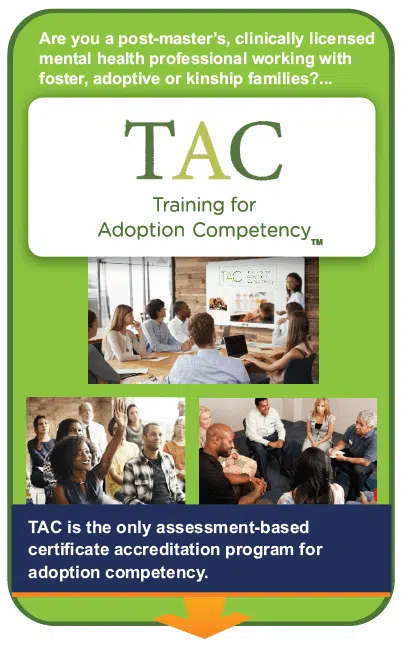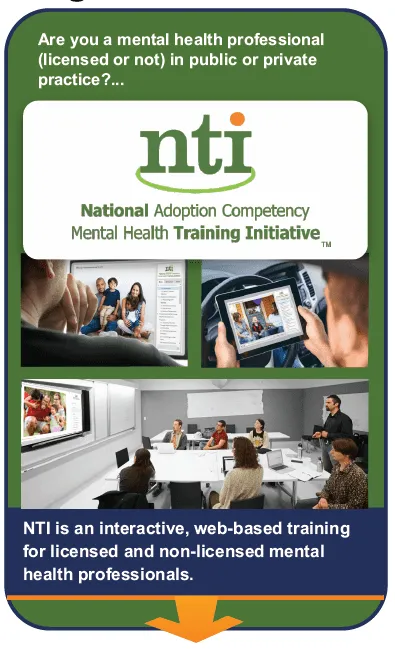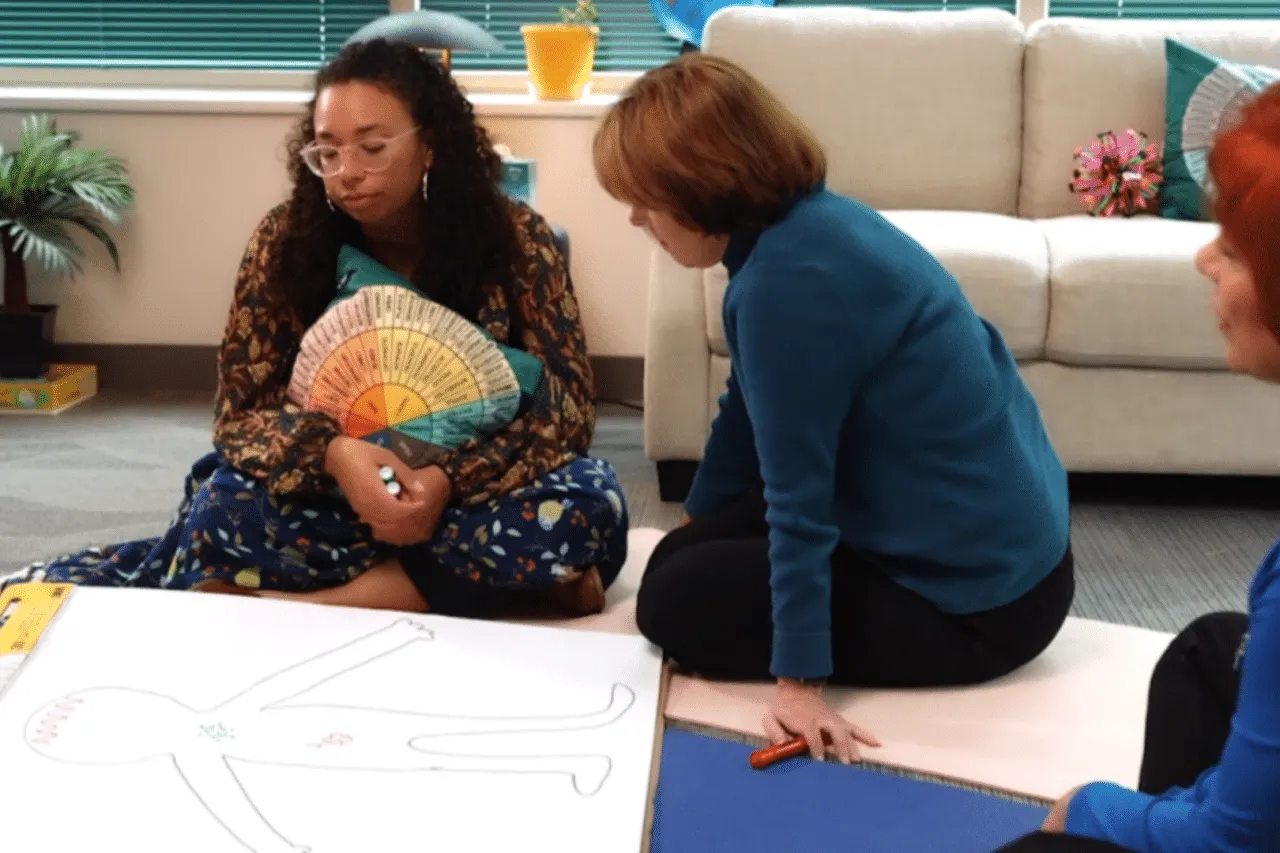Counseling Awareness Month – Which Training is Right For Me?
Counseling Awareness Month – Which Training is Right For Me?

In recognition of Counseling Awareness Month, we want to share two excellent training programs to assist mental health professionals to enhance their adoption competency u2013 that is, the knowledge, skills and abilities that enable therapists to understand and effectively address the complex and differing needs of youth and their foster, adoptive and kinship families. This includes a focus on strategies to address loss and grief, trauma, and identity challenges, as well as promoting attachment.
Did you know?
Adoption from foster care is one of the most common types of adoption in the United States, with more than 63,000 adoptions occurring in 2018 u2013 the last full year data is available (AFCARS 2020). Prior to being adopted, most of these children have experienced trauma u2013 including abuse and neglect. Many have had multiple placements and severed relationships and attachments. This lack of stability combined with adverse early experiences often leads children to experience mental health and behavioral challenges.
The American Academy of Pediatricians has identified mental health as the greatest unmet need of children in foster care. This unmet need has serious consequences as it frequently impacts the stability of the family and may even lead to further disruption for the child. An endless cycle of impermanence and instability may result in additional trauma, furthering mental health and behavioral difficulties. The good news is youth can do well when they have a committed, loving, and stable family as well as professionals with the right training respond effectively to the myriad issues that may arise.
Therapists may think that the same tools and strategies they use with other families are adequate or appropriate for children with these early adverse experiences but that is rarely the case. Some families report that services are ineffective while others share that unskilled services have, at times, been harmful to their families.
Choose the training that works best for you.

- 72-hour instructor-led training with case consultation
- Accredited by the Institute for Credentialing Excellence (I.C.E.)
- Evaluated rigorously with over 1,900 TAC graduates
- Rated by California Evidence-based Clearinghouse for Child Welfare
- CEUs, Certificate of Completion, and national recognition in C.A.S.E.’s online Directory of TAC trained mental health providers
- Available with varying costs in 17 states through licensed TAC sites

- 30 hours web-based training
- 10 competencies
- Evaluated with over 2,800 mental health professionals to assess satisfaction, efficacy and impact on practice
- CEUs, Certificate of Completion, national recognition in C.A.S.E.’s Directory of NTI Trained Professionals
- Available through C.A.S.E. as a free training nationwide
Training Approaches
TAC Curriculum focuses on clinical practice of therapists working with adoptive families experiencing public, private, kinship and inter-country adoption.
Approach: Advanced presentations on critical adoption issues, emphasizing clinical implications and current evidence-based/-informed clinical practices. Opportunities for discussions with transfer-of-learning to practice examples and practical
applications for clinical case consultations.
NTI Mental Health Curriculum focuses on clinical practice with emphasis on work with children and youth in foster, adoptive, and guardianship families.
Approach: Foundational content based on most current research and practice knowledge. Includes tools and practical strategies that promote healing, healthy development, permanency, family stability and emotional well-being.
Benefits & Features
- TAC: Gain an in-depth understanding of core adoption issues, current clinical tools and evidence-based approaches.
- TAC: Be an asset for risk management by bringing quality, evidence-based clinical practices to the work of your agency.
- TAC: Receive practical ideas and resources to use in your work. Expand your network of mental health professionals from the class and enjoy collaborating.
- NTI: Gain a shared language with understanding for improved collaboration between mental health and child welfare service systems.
- NTI: Be interactive and engaged u2013 real life scenarios, case vignettes and videos of actual lived experience and experts.
- NTI: Select from many free resources in each module to download and use in your work.
For more information, download the Which Training is Right for me: TAC or NTI Training Flyer here.
Written by Dawn Wilson, MSW, Director, C.A.S.E National Training Institute













